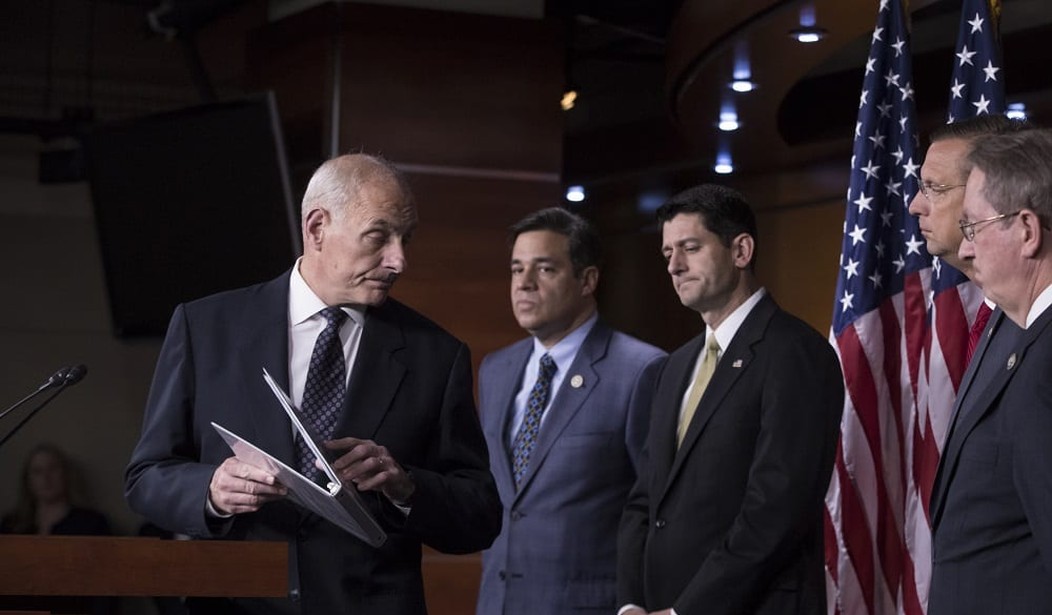During his campaign, Donald Trump was pretty clear that he did not support Deferred Action for Childhood Arrivals (DACA) program as currently configured. Since his inauguration, the NeverTrumpers and the hardline anti-immigrant activists have proclaimed that Trump was going back on his campaign promise. Whatever. The problem is one that is fraught with political downsides–who really wants to deport someone who was brought to the US as a child and is for all practical purposes an American–and the obvious solution rests with Congress making its voice heard on the issue. What seems very clear is that while the Trump administration is not going to act to revoke DACA, neither is it going to do anything to keep it in place.
If you recall, in mid-June the Trump administration announced that it was terminating the Deferred Action for Parents of Americans and Lawful Permanent Residents (DAPA) program. This expanded DACA to protect the parents who brought the child to the US illegally. This encouraged the wave of unaccompanied minors who attempted to cross into the US over the past couple of years–they represented protection from deportation for their parents who were here illegally–and the increase in family units illegally immigrating. This was a fairly easy decision to make as its implementation had been halted by a federal judge as illegal.
At the end of June, Texas and nine other states told Attorney General Jeff Sessions that if he did not end DACA they would sue the administration to end it.
The message seems to have been heard.
An Obama-era deportation relief program may soon face a legal challenge — and the Trump administration won’t commit to defending it, Homeland Security Secretary John Kelly told Hispanic lawmakers at a closed-door meeting Wednesday on Capitol Hill.
Twenty Democratic members of the Congressional Hispanic Caucus pressed Kelly for assurances that he would help preserve the Deferred Action for Childhood Arrivals program, which grants deportation relief and access to work permits to undocumented immigrants brought to the U.S. at a young age.
Kelly told the lawmakers that although he personally supports DACA, he can’t guarantee that the administration would defend it in court. He also said that he’d consulted attorneys who told him the program wouldn’t survive a legal challenge.
…
Kelly’s comments, and Lapan’s, suggest the Trump administration likely won’t defend DACA if it’s challenged in court. At the meeting, Kelly urged Congress to find a legislative solution. Bipartisan bills in the House and Senate, dubbed the Bridge Act, would provide legal status for DACA recipients. But Kelly hasn’t given it his endorsement.
This means that if the ten state attorneys general follow through on their stated intention to sue over DACA, DACA is dead. The administration is using this as a way to motivate Congress to act and, at the same time, it avoids bad press for revoking DACA.














Join the conversation as a VIP Member